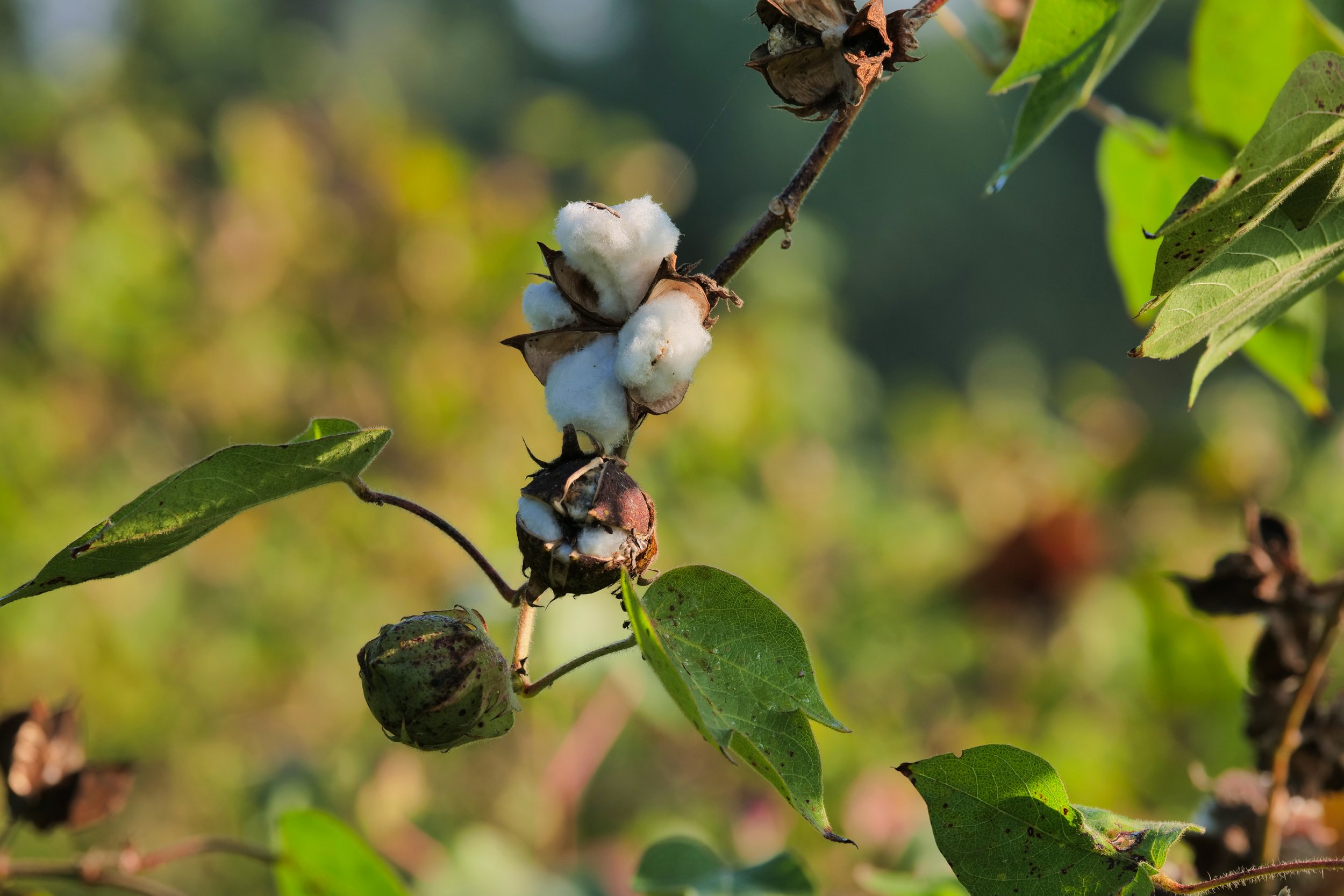CottonConnect's Organic Cotton Pilot in Pakistan
CottonConnect has worked closely with organic cotton farmers through the Organic Cotton Farmer Training Programmes over the past 12 years. Supporting them to adopt organic practices and ensuring that the organic cotton fibre meets international standards. By connecting major brands to organic cotton farmers, we can empower farmers to deliver with transparency, consistency, and integrity.
In 2021 we embarked on a three-year journey to promote and scale organic cotton production in Pakistan. This organic cotton pilot project in Pakistan was initiated with the primary goal of reducing greenhouse gas (GHG) emissions within the cotton supply chain and to increase the organic cotton supply in the region.
This strategic move also aligns with the broader global efforts to combat climate change and foster sustainability in agriculture. Additionally, the pilot sets a stepping stone towards revolutionising the organic cotton landscape in Pakistan. According to Textile Exchange’s Organic Cotton Report 2022, despite being the world’s seventh largest cotton producer, Pakistan only contributes 0.6 percent to global organic cotton production.
Sowing the seed of change
In 2021-22, we initiated the Organic Cotton Farmer Training pilot programme in Pakistan with a group of pioneering cotton farmers in the Ghotki and Rahim Yar Khan districts, cultivating 150 acres of land. The programme covers multiple aspects of agronomic interventions with a focus on good agricultural practices, soil health management, organisation of farmers’ collectives and enhanced biodiversity.
The results
As we progress into the third year of the programme, the careful adoption of organic practices has borne fruit. The farmers have witnessed the cotton crops flourish – early blooms and healthy yield. Rigorous testing for pesticide residues and GMOs confirmed the organic integrity of the cotton, leading to a significant milestone - certification from Control Union, authenticating the farmers' efforts.
In the 2022-23 crop season, our farmers cultivated cotton on over 150 acres of land, producing 99 MT of seed cotton. Through adherence to organic principles, our farmers have also seen a 42% reduction in input costs.
Sikandar Mustafa, a smallholder with three acres of cotton cultivation, is passionate about continuing organic cotton practices in the upcoming seasons. On joining the organic training programme, he eagerly embraced alternative materials like neem and bitter melon solutions, realising that synthetic fertilisers and pesticides were not a necessity for a successful cotton crop. Implementing sustainable methods like using yellow and pheromone traps to monitor pest populations and using bio-composts for soil health management, Sikandar was surprised by the influx of friendly insects and birds on his farm. He even achieved a yield comparable to previous seasons. With his land now certified organic, he also grows organic wheat with guidance from CottonConnect and is hopeful of getting a good price for his produce.
This success story echoes the broader transformative journey we have embarked upon in Pakistan's cotton industry. By embracing organic cotton cultivation methods, we are championing a lower carbon footprint, steering away from synthetic pesticides and fertilisers. Our aim is to cater to the growing consumer demand for sustainable and eco-friendly products while reducing GHG emissions and contributing superior quality fiber to the industry.
































